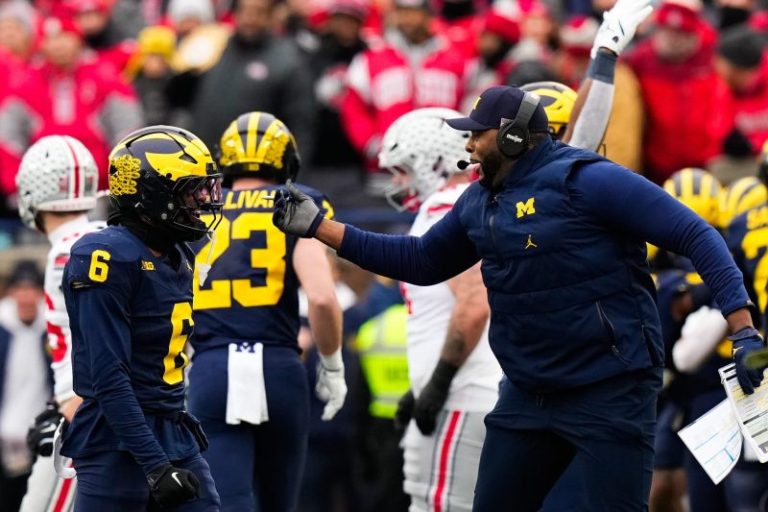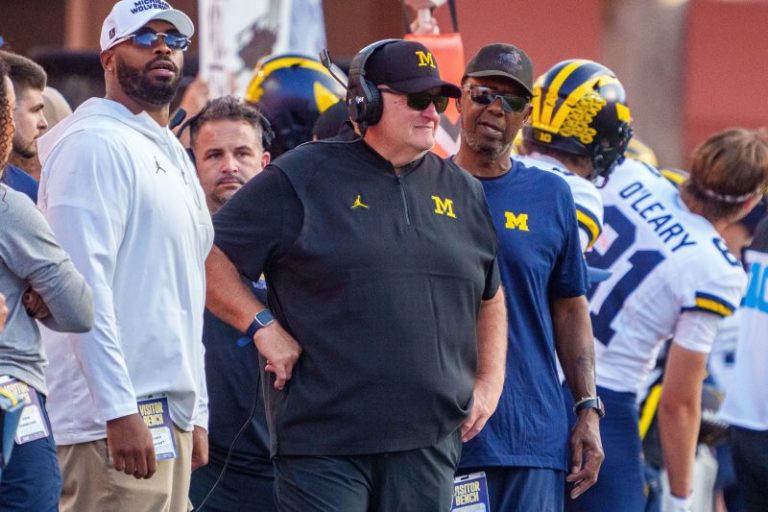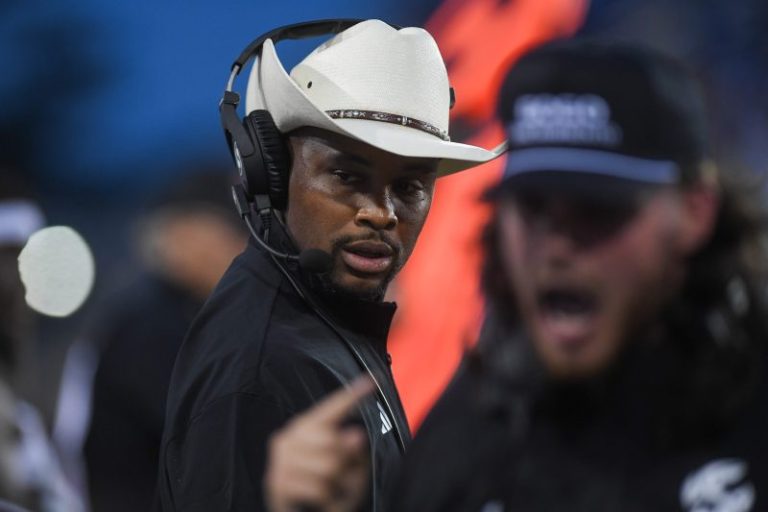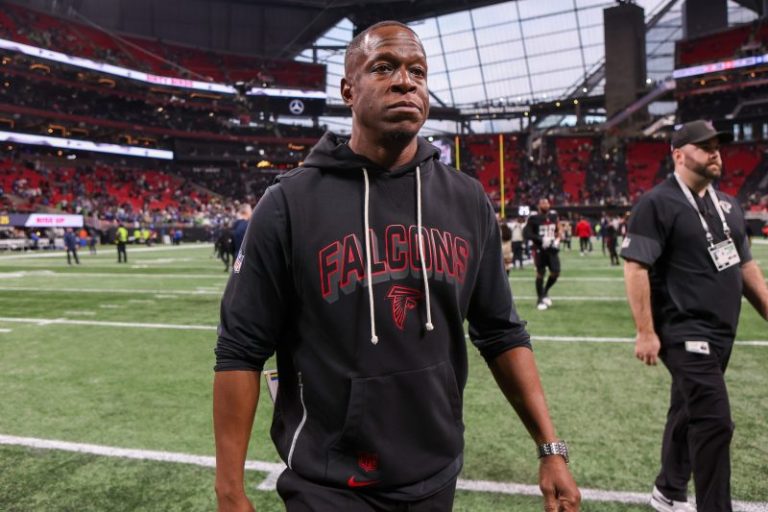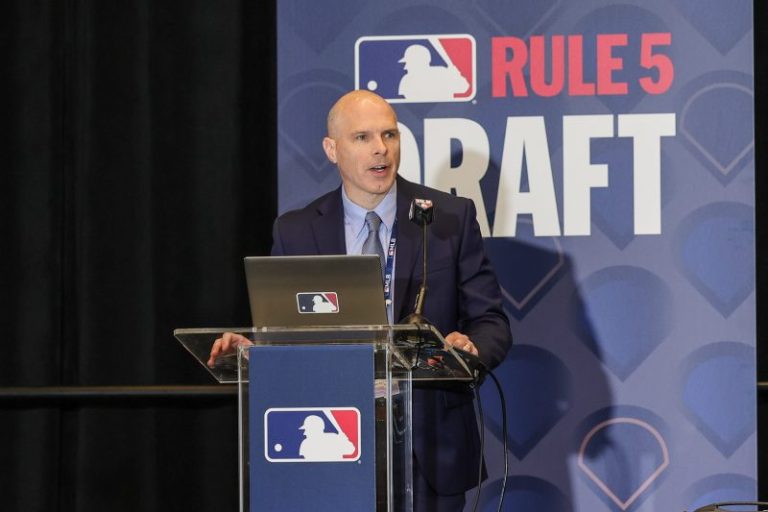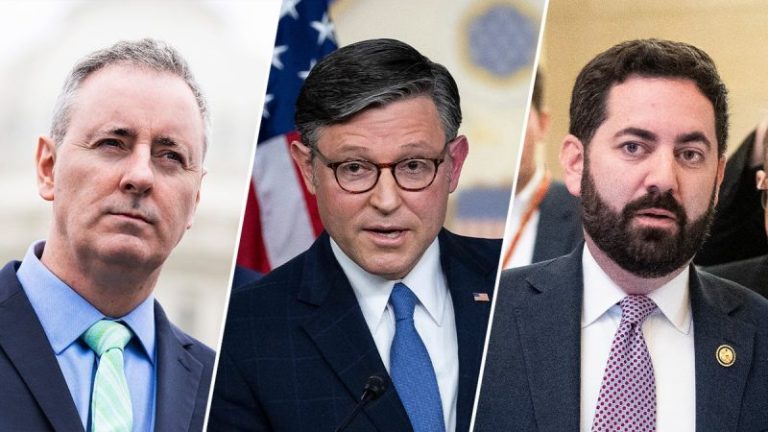The dam broke at Major League Baseball’s winter meetings on Tuesday morning with news of free agents Kyle Schwarber and Edwin Diaz agreeing to new contracts in quick succession.
Schwarber is returning to the Philadelphia Phillies on five-year, $150 million deal, while Diaz is set to join the champion Los Angeles Dodgers with a reported three-year, $69 million pact that will make him the highest-paid (annually) relief pitcher in history.
Baseball’s annual gathering is winding down in Orlando but will we see more big moves before everybody scatters home?
Follow along Wednesday for the latest news, rumors and updates:
Pete Alonso contract with Orioles leaves Mets reeling
ORLANDO, FL — The Baltimore Orioles wasted no time pivoting from their pursuit of slugger Kyle Schwarber and signed first baseman Pete Alonso to a five-year, $155 million contract.
Alonso becomes the latest fan-favorite to leave the New York Mets after the team traded outfielder Brandon Nimmo and All-Star closer Edwin Diaz left for the Los Angeles Dodgers.
Alonso, who originally was seeking a seven-year contract and badly wanted to return to the Mets, departed when it was clear New York didn’t want to offer more than three years. And once teams started making offers for more than that, the Mets never budged or submitted a formal offer.
– Bob Nightengale
Rule 5 draft results – major league phase
Rockies: RHP RJ Petit (from Tigers)
White Sox: RHP Jedixson Paez (from Red Sox)
Nationals: RHP Griff McGarry (from PHI)
Twins: C Daniel Susac (from Athletics, later traded to SF for C Miguel Caraballo and cash)
Pirates: RHP Carter Baumler (from BAL; later traded to TEX for RHP Jaiker Garcia and cash)
Athletics: RHP Ryan Watson (from SF)
Cardinals: RHP Matt Pushard (from MIA)
Astros: RHP Roddery Muñoz (from CIN)
Guardians: RHP Peyton Pallette (from White Sox, CWS No. 14 prospect)
Blue Jays: RHP Spencer Miles (from SF)
Yankees: RHP Cade Winquest (from STL)
Phillies: RHP Zach McCambley (from MIA)
White Sox: RHP Alexander Alberto (from TB)
Rule 5 draft order
The final order of business at MLB’s annual Winter Meetings is the Rule 5 draft. It will take place Wednesday, starting at at 2 p.m. ET.
The draft gives teams an opoportunity to select minor leaguers who aren’t on other clubs’ 40-man rosters for a $100,000 claim fee. Players selected must remain on the drafting team’s major league roster for the entire 2026 season or they return to their original organization.
Last year, the Chicago White Sox selected pitcher Shane Smith with the top overall pick, and were rewarded with an All-Star season from the 25-year-old right-hander.
Here’s this year’s Rule 5 draft order:
Colorado Rockies
Chicago White Sox
Washington Nationals
Minnesota Twins
Pittsburgh Pirates
Los Angeles Angels
Baltimore Orioles
Athletics
Atlanta Braves
Tampa Bay Rays
The draft continues in reverse order of last year’s standings. The draft proceeds until all teams pass.
Report: Pirates agree to terms with reliever Gregory Soto
The Pittsburgh Pirates have landed a free agent! We already knew it wasn’t Kyle Schwarber … but left-hander Gregory Soto has agreed to a one-year, $7.75 million deal, according to ESPN.
Soto, 30, had a 4.18 ERA last season over 60 1/3 innings with the Orioles and Mets. He struck out 70 batters, while walking 24 with a 1.43 WHIP. He’s likely to serve as a primary set-up man for presumed closer Dennis Santana.
Carlos Beltran reacts to Edwin Diaz leaving Mets
In the near two years that Carlos Beltran has served as a special assistant to the general manager/president of baseball operations with the New York Mets, he has had the opportunity to get to know fellow Puerto Rican Edwin Diaz.
On Tuesday afternoon in a conversation ahead of the World Baseball Classic, where Beltran is serving as Puerto Rico’s general manager, he discussed the Mets losing out on Diaz.
‘He’s a guy that in the years that I’ve been around the Mets, great teammate, great person, prepares extremely well, Beltran said. ‘He dominates. So as a Met, there’s no doubt that some of the Mets fans probably are a little down right now and as a Dodger fan, you gotta feel good about adding a guy like that that you can count on in the ninth inning.’
– Andrew Tredinnick, NorthJersey.com
Tigers re-sign reliever Kyle Finnegan
ORLANDO, FL — There’s a Detroit Tigers reunion at the Winter Meetings.
The Detroit Tigers re-signed right-handed reliever Kyle Finnegan on Tuesday, Dec. 9, to a two-year, $19 million contract in free agency, according to a person with knowledge of the agreement. There aren’t any opt-outs or options, meaning Finnegan is set to pitch for the Tigers in 2027 as well.
In 2025, Finnegan posted a 3.47 ERA with 18 walks and 55 strikeouts across 57 innings for the Washington Nationals (40 games) and the Tigers (16 games), racking up 24 saves in 31 chances.
The Tigers acquired Finnegan from the Nationals at the July 31 trade deadline,
− Evan Petzold, Detroit Free Press
2026 MLB draft top prospects: White Sox win No. 1 pick in lottery
Major League Baseball’s draft is still more than eight months away. Yet after the Dec. 9 draft lottery determined the selection order, you could say the Chicago White Sox are ready to Roch.
The White Sox earned the No. 1 overall selection among eligible teams, earning them first crack at UCLA shortstop Roch Cholowsky – the overwhelming choice to top the draft board come July.
USA TODAY Sports breaks down the draft order and takes a look at 17 top prospects who might slide into the pool of lottery and non-playoff clubs:
1. (White Sox) Roch Cholowsky, SS, UCLA: Reigning collegiate player of the year combines 6-2, 205-pound frame with elite speed and Gold Glove-caliber defense.
2. (Rays) Grady Emerson, SS, Fort Worth Christian HS: The consensus top prep player available, he’s a Texas commit who recently batted .346 with a .949 OPS in a stint for Team USA, earning All-World honors.
3. (Twins) Derek Curiel, OF, LSU: Possibly the best pure hitter in the draft, Curiel batted .390 during LSU’s run through the NCAA playoffs and a College World Series title and will move to center field in his second season at Baton Rouge, which should enhance his stock.
4. (Giants) Justin Lebron, SS, Alabama: Displayed 18-homer pop as a sophomore and led the SEC in RBIs to go along with a very sound skill set at shortstop.
5. (Pirates) Tyler Spangler, SS, De La Salle (Calif.): Like your shortstops big and physical? Spangler may be your man. The Stanford signee, 6-3 and 195 pounds, has a consummately projectable long, lean build, a clean left-handed swing and 6.56 60-yard dash speed.
– Gabe Lacques
Scott Boras explains Schwarber’s impact on Alonso contract
ORLANDO, FL — Agent Scott Boras believes that DH Kyle Schwarber’s five-year, $150 million contract will not only accelerate free-agent signings this winter, but will lead to longer-term contracts for sluggers over the age of 30.
Yes, in particular the 31-year-old New York Mets first baseman Pete Alonso, who’s represented by Boras.
“The evidence in the market is that these premium talents that have power,’ Boras said, “are in great demand. And the teams are willing to give more length to secure plot power in the marketplace. …
“Schwarber is obviously one of the best power hitters in the game, and all of these guys that are elite, whether they’re 29 or 30, they see a player who’s got five years length at 33, it’s obviously a fair quotient for the players that are younger to demand more years. …
“I think it really shows the demand for power. We just don’t have a lot of it, and it shows the impact that it has.’
– Bob Nightengale
What’s next for Mets with Edwin Diaz’s departure?
While Mets president Stearns declined to comment on Diaz’s departure, given the deal has not been finalized, the latest departure of one of their core pieces underscores a new level of urgency.
‘I think when we go into an offseason, we have lots of different paths that the offseason can take,’ Stearns said. ‘We thought it important to bring in a reliever of really high quality. We’re really excited we were able to do that with Devin Williams. We think he’s going fit our club really well.
‘I’m also confident we’re going to continue to add to the pen and have a very good one when we get to the regular season.’
– Andrew Tredinnick, NorthJersey.com
Padres, Diamondbacks to play Mexico City games
The Arizona Diamondbacks and San Diego Padres will play two regular-season games in Mexico City in 2026. Major League Baseball announced the return of the Mexico City Series on Wednesday. The National League West rivals will play on April 25 and 26 at Estadio Alfredo Harp Helu.
The Padres played the San Francisco Giants in the Mexican capital in 2023, and the Houston Astros and Colorado Rockies squared off there in 2024.
‘We are honored to bring Padres baseball back to Mexico City for another unforgettable series in 2026,’ said Padres CEO Erik Greupner. ‘Our debut there in 2023 was historic, and this return reflects our continued commitment to celebrate our bi-national fan base and help grow the game of baseball internationally.
– Field Level Media
Boras says Yankees are in on Cody Bellinger
According to Scott Boras, when GM Brian Cashman and club president Randy Levine call, they don’t mention anything about a limited payroll.
“They talk about acquiring players,’’ said Boras, who referenced the Yanks’ $700 million-plus pursuit last December of his free agent client Juan Soto, who ultimately signed a record deal with the Mets.
“(Owner) Hal (Steinbrenner), Randy and Cash did everything they could possibly do to pursue a great talent,’’ said Boras. “I have no reason that they wouldn’t approach this market any different than that.’
Boras wouldn’t say if Steinbrenner had personally entered the Bellinger negotiations, ‘but the Yankees have reached out about Cody, and we continue to talk.’
– Pete Caldera
This post appeared first on USA TODAY

